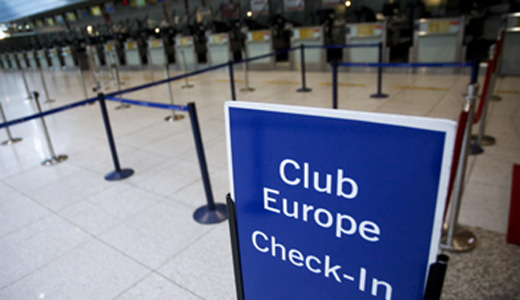
A massive one-day general strike paralyzed Portugal November 24, as major labor federations united to denounce austerity measures being imposed by the Socialist Party Prime Minister, Jose Socrates.
The unions claim the strike was 80 percent effective. Media reported complete shutdowns in many areas of airlines, public transportation, government administrative offices, schools and health care facilities, throughout Portugal and in the autonomous island territories of the Azores and Madeira. Although the backbone of the strike consisted of government workers, there were reports of bank and factory closings as well. Between a million and a half and three million workers may have stayed home in this country of barely 10 million.
Portugal is the “P” in the “PIIGS” group of poorer Western European nations that are members of the European Union and share the “Euro” currency. The others are Ireland, Italy, Greece and Spain. All of these countries have been hit by debt crises, with budget deficits far beyond what the European Union rules allow, as well as national debt close to or exceeding the annual Gross Domestic Product (in Portugal, more than 80 percent). This is leading to sharp increases in the cost of borrowing. In spite of differences in the political composition of their current governments, they have all responded by imposing austerity measures, designed to reassure the financial markets that hit workers and the poor especially hard. Several of the countries have been negotiating bailouts with the Council of Europe, the European Central Bank and even the International Monetary Fund. Mr. Socrates says that Portugal will not need such a bailout, though this is what the Irish government was saying a week ago, just before it was forced to go hat in hand to seek just such help.
Portugal already saw massive protests against the austerity program back in May. Now the government, still faced with large budget deficits, has decided to impose a new austerity program, including a one percentage point rise in the regressive value added tax (from 20 percent to 21 percent), a hike in income taxes, cuts in pensions and the pay (of up to 5 percent annually) of civil servants, and cutbacks in public services in general. A vote on these measures took place in the Portuguese parliament November 26.
The two major union federations in Portugal united to oppose and protest the cuts through the general strike. They are the General Confederation of Portuguese Workers (CGTP), which is the largest union federation in the country and which is close to the Portuguese Communist Party (PCP), and the General Union of Workers, UGT, which is close to the governing Socialist Party.
This unity between communist and socialist led unions is a first in 22 years, and is especially significant because the Prime Minister, Jose Socrates, is from the Socialist Party. So a large proportion of his social base is in fact repudiating his policies.
The PCP and labor see the government as trying to resolve the crisis on the backs of workers, small farmers and the poor. They demand that the government rather impose a sharp increase in taxes on the rich, who they consider to have caused the problem in the first place.
In a statement on its website, the Communist Party of Portugal hailed the striking workers for their courage in adversity: This was “a success all the more outstanding given how many hundreds of thousands of workers are confronted by situations of indebtedness and with the worsening of the cost of living. [These are] workers for whom a one day strike implies a loss of a day’s wages”.
Meanwhile in Ireland, Prime Minister Brian Cowan of the Fianna Fail party is seeing his house of cards nearer to collapse. His coalition partner, the Green Party, has pulled out of the governing coalition and there is a rebellion in the ranks of Fianna Fail in the Dail (the lower house of the Irish parliament). Also, while swearing that there would be no need to ask for a bailout from the European Union, Cowan is now forced to negotiate for just such help.
In Greece, merchant sailors staged a strike on November 24, which cut off all transportation among Greece’s many islands.
Now all eyes are on Spain, with 35 million people the second largest of the PIIGS countries after Italy. If Spain should catch the Greek-Irish-Portuguese disease, the survival of the Euro currency might be severely threatened.
Photo: Check in counters are empty at Lisbon’s international airport Nov. 24 during the usually busy early morning. Dozens of flights were cancelled due to a general strike protesting the government’s austerity measures. Francisco Seco/AP

MOST POPULAR TODAY

High Court essentially bans demonstrations, freedom of assembly in Deep South

Zionist organizations leading campaign to stop ceasefire resolutions in D.C. area

U.S. imperialism’s ‘ironclad’ support for Israel increases fascist danger at home


UN warns that Israel is still blocking humanitarian aid to Gaza






Comments